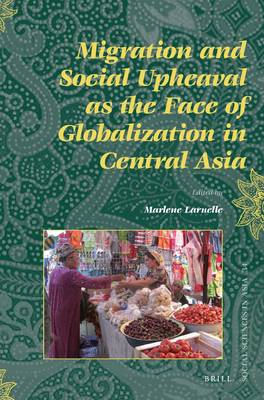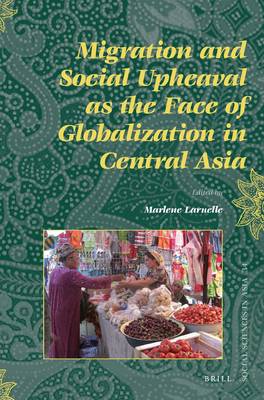
- Afhalen na 1 uur in een winkel met voorraad
- Gratis thuislevering in België vanaf € 30
- Ruim aanbod met 7 miljoen producten
- Afhalen na 1 uur in een winkel met voorraad
- Gratis thuislevering in België vanaf € 30
- Ruim aanbod met 7 miljoen producten
Zoeken
Migration and Social Upheaval as the Face of Globalization in Central Asia
€ 252,45
+ 504 punten
Omschrijving
Since the start of the 1990s, Central Asia has been the main purveyor of migrants in the post-Soviet space. These massive migrations impact issues of governance; patterns of social adaptation; individual and collective identity transformations; and gender relation in Central Asia.
Specificaties
Betrokkenen
- Uitgeverij:
Inhoud
- Aantal bladzijden:
- 422
- Taal:
- Engels
- Reeks:
- Reeksnummer:
- nr. 34
Eigenschappen
- Productcode (EAN):
- 9789004226814
- Verschijningsdatum:
- 4/04/2013
- Uitvoering:
- Paperback
- Formaat:
- Trade paperback (VS)
- Afmetingen:
- 163 mm x 239 mm
- Gewicht:
- 938 g

Alleen bij Standaard Boekhandel
+ 504 punten op je klantenkaart van Standaard Boekhandel
Beoordelingen
We publiceren alleen reviews die voldoen aan de voorwaarden voor reviews. Bekijk onze voorwaarden voor reviews.







